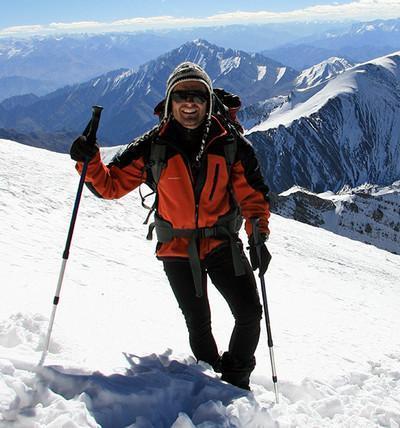The off-season is more than just relaxation for players and winter sports fans; it's a fantastic chance to get ready for the next season and get a competitive advantage.
The effort you put in during the summer months may have a significant impact on your performance when the snow and ice arrive, regardless of your preferred sport—skating, snowboarding, ice hockey, or figure skating.
You may develop the strength, endurance, and technical abilities necessary for optimal success in winter sports via off-season training.
Recognizing The Value Of Training Off-Season
High levels of stamina, perfect balance, and explosive force are often needed for winter sports. After the season is over, it may be tempting to take a full break. Long-term inactivity, however, may result in delayed reflexes, decreased cardiovascular fitness, and muscle loss.
By bridging the gap between seasons, off-season training allows you to work on your shortcomings and maintain your body's conditioning. It's the ideal time to build physical qualities that could be more difficult to concentrate on during the competitive season, increase flexibility, and heal from minor ailments.
Emphasizing Agility And Balance
In winter sports, balance is a crucial ability since it enables players to retain control while responding swiftly to changing circumstances. Exercises that test stability, such as yoga poses, balance board drills, and single-leg stands, should be included in off-season training. Proprioception, or the knowledge of your body's position and movement, is enhanced by these exercises, which also work your core muscles. Cone sprints and ladder exercises are examples of agility training that help improve reflexes and coordination, allowing for quicker reactions and more seamless transitions during competition.
Drills Particular To Skills And Cross-Training

You can still practice sport-specific skills even in the absence of snow or ice.
Athletes may continue honing their discipline throughout the year by engaging in activities like roller skiing, dryland hockey practice, and synthetic ice skating.
Maintaining your competitive edge may be achieved via cross-training in complementary activities, such as inline skating for hockey players or mountain biking for skiers, which can build comparable muscle groups and movement patterns.
This is also a great chance to review your technique and form. Recording your practice sessions and examining your movement patterns might reveal small changes that result in big gains. Including resources like a Quality guest post on sports performance in your online writing or sharing training ideas may motivate others and assist you in improving your own tactics.
Adaptability And Recuperation
Although it's sometimes disregarded, flexibility is essential for lowering the risk of injury and increasing general movement efficiency. Mobility exercises, stretching regimens, and even Pilates may significantly improve your capacity to move freely and respond to abrupt changes in your sport's environment. Your strategy should also include rest days, sports massages, and foam rolling to keep your muscles strong and ready for the next season.
Goal-Setting And Mental Preparation
The off-season provides an opportunity to improve your mental toughness in addition to your physical training. Breathing exercises, mindfulness training, and visualization methods help improve attention and lessen performance anxiety. For your next competition season, setting specific, quantifiable objectives gives you drive and focus. Training becomes more meaningful when you know precisely what you're striving for, whether it's cutting seconds off your ski time or making a more challenging jump.
Performance Nutrition
Properly fueling your body throughout the off-season is just as crucial as it is during competition. Lean proteins, complex carbs, healthy fats, and vital vitamins are all part of a balanced diet that promotes muscle repair, increases vitality, and facilitates recuperation. Even if you're not working in chilly weather, staying hydrated is still essential since dehydration may still affect performance.
Conclusion
When the snow melts, winter sports training continues. The off-season is a calculated time to develop strength, hone abilities, and be mentally and physically ready for the challenges that lie ahead. In addition to returning to the slopes, rink, or trails prepared to compete at your peak, concentrating on regular, well-rounded training can lower your chance of injury and increase your athletic lifespan. Your hard work throughout the hot months will pay off in the form of quicker times, more seamless turns, and more self-assurance when winter arrives.
ABOUT THE AUTHOR
Fred Felton
Content Creator / Editor
Fred Felton is a copywriter, editor and social media specialist based in Durban, South Africa. He has over 20 years of experience in creating high end content. He has worked with some of the biggest brands in the world. Currently Fred specialises in the winter outdoors space, focussing on skiing and snowboarding. He is also a keynote speaker and has presented talks and workshops in South Africa.






